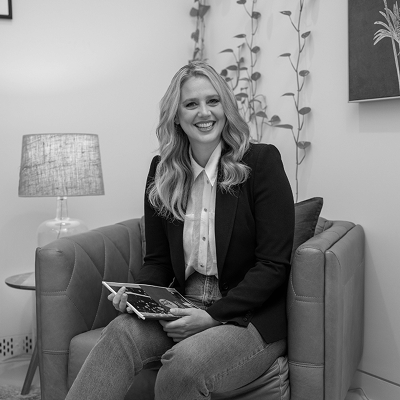
ASKING FOR A FRIEND
What legal advice do you have for a young freelancer who doesn't have terms and conditions
ASKING FOR A FRIEND - QUESTION
Starting as a freelance designer without legal knowledge or budget? Andy Wright from Never Not Creative and Sarah Gross from Storyfolk share practical advice on free legal templates, smart payment structures, and protecting yourself as a creative professional. Learn how to set up terms and conditions, structure payments for better cash flow, and avoid common pitfalls that leave designers working for free. Plus, discover Never Not Creative's Support Line for more serious workplace issues. Essential viewing for any creative starting their freelance journey.
Getting Started as a Freelancer: Your Legal Safety Net
Starting out as a freelance designer can feel overwhelming, especially when you're juggling creativity with the business side of things. One of the biggest hurdles? Figuring out terms and conditions when you don't have a law degree or a hefty budget for legal advice.
This question was answered by Andy Wright – Founder of Never Not Creative, Co-Chair Mentally Healthy and CEO Streamtime – and Sarah Gross – Creative Director and Partner of Storyfolk. Both bring years of experience helping creatives navigate the business world while protecting their wellbeing and financial security.
Free Resources Are Your Friend
The good news is you don't need to break the bank to protect yourself legally. As Andy points out, "there's so many great resources" available for free. Law Depot is one excellent starting point, offering templates for everything from partnership agreements to terms and conditions.
These templates give you a solid foundation to work from, covering the essential legal ground without requiring a law degree to understand.
Payment Terms That Actually Work
When it comes to payment structure, shorter is better. Andy recommends starting "with as low as short payment terms as possible" rather than waiting until project completion to get paid.
Sarah shares how their approach evolved: "When we first started story for our payment structure was 50% at the start and 50% before we handed over the brand. That's you know now we don't do that because things are out of your control."
Instead, she suggests regular payments throughout the project, which is "more manageable on the client's end because it's rather than two larger payments, they can spread it out and better for cash flow."
Smart Payment Strategies
Andy's agency used a two-week sprint system with invoices sent at the beginning of each sprint and 14-day payment terms. This meant "we got the payment literally straight at the end, paid every two weeks." While not always perfect, this approach helps ensure you can "put food on the table that evening."
The key watchouts include:
- Avoiding handing work over before payment
- Setting up regular payment milestones
- Not working for free until the final payment
When You Need Extra Support
If you're facing more serious workplace issues like unpaid work, bullying, or harassment, Never Not Creative's Support Line offers free introductory legal advice. This service, run in partnership with Artis Causa, provides specialist support for creatives dealing with workplace mistreatment. You can access this support at nevernotcreative.org/support.
Your Creative Business Deserves Protection
Remember, protecting yourself legally isn't just about paperwork – it's about creating the foundation for a sustainable creative practice. With the right terms and conditions in place, you can focus on what you do best: creating brilliant work without the constant worry about getting paid or being taken advantage of.
our guests
Industry Leader

Sarah Gross
Storyfolk
Mental Health Expert

Tara Hurster
Host

